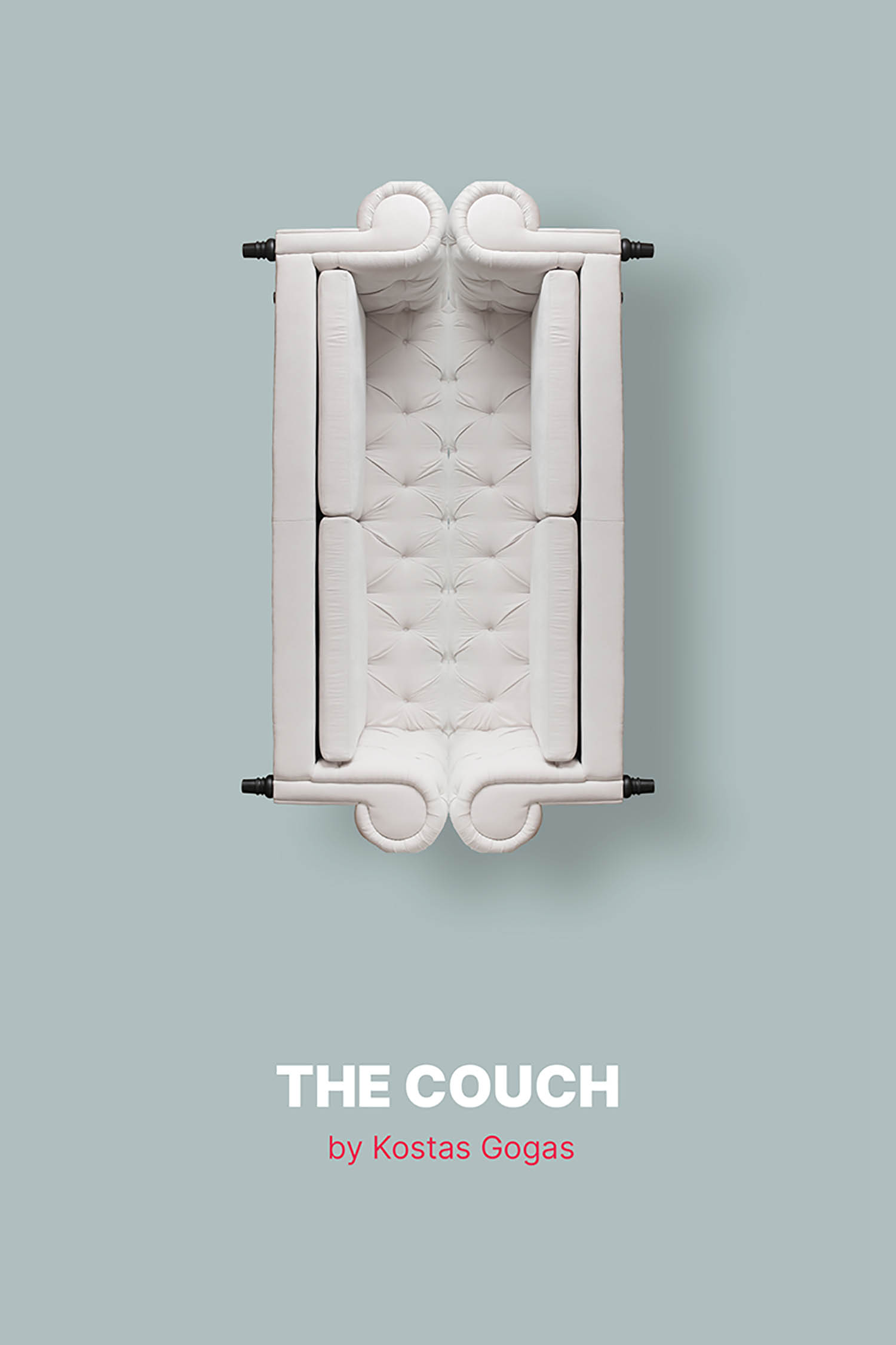


The Couch is a short short story by artist Kostas Gogas. It is written in first person and presents two days of an unnamed protagonist who tries to escape his 'couch' routine for a single day but finds himself going blind without any apparent reason.
The story explores themes of isolation, social approval, personal expression and shared experiences and it is written in two parts, the first presents the personal needs of the individual and the second the detachment of his outer social circle. It can be described as absurd, weird and surreal• but also existential and Kafkaesque in the form of the individual being suppressed by higher invisible patterns that torture him without him having done anything to deserve so.
Artist Kostas Gogas has supported the view of "The Couch" being an allegory of social media platforms and internet culture where social approval chokes originality, supporting only common social patterns as well as the individual himself navigating in darkness without it.
It was released as an ebook in September 2020, and it was written in early 2019.
If you like absurd, existential, surreal, Kafkaesque stories with loose ends or writing that explores the psychology of the modern individual inside the mess of social approval and shared experiences, then you are going to like this.
Choose your format.
Spoilers ahead! Do not read this if you haven't read "The Couch" yet.
The Couch, as the photo in the cover, traps the sitter. Contemporary society has developed some standards of behavior that may push individual expression to a corner.
The unnamed protagonist/narrator himself goes blind when attempting to escape his usual boring routine and that makes him think about other 'smaller' problems that torture him.
And while the first part of the story presents an absurd situation, the second part reveals the absurd response to that situation: the protagonist doesn't even care about his blindness, to the contrary, this is the day where we actually see him experience his boring routine, as if nothing had happened.
But in the midst of his boring socializing and supressed personal-crisis, the protagonist routinely decides to reveal a 'big secret project' he has been developing for quite some time right at this very moment.
This rings as a desperate action towards personal expression: the protagonist didn't succeed on doing something on his own the previous day, but how about expressing himself onto the people he can't get away from or trying to affect the structures he finds himself in?
The answer is not positive. After 'his disatrous showoff', as he puts it, the protagonist decides to blend in and leave his own impulses behind.
Good or bad. That's what happens.
Send it to a friend!